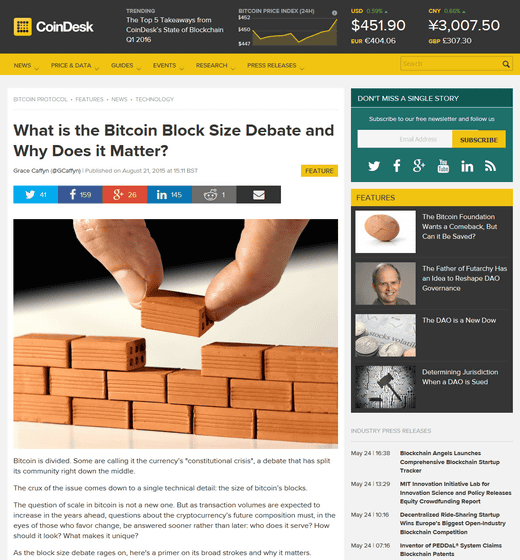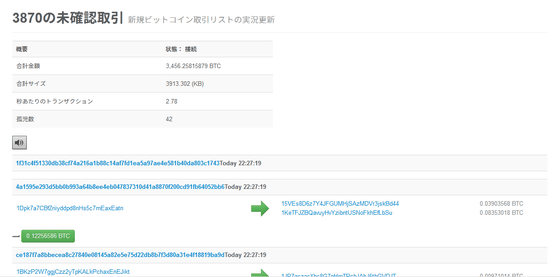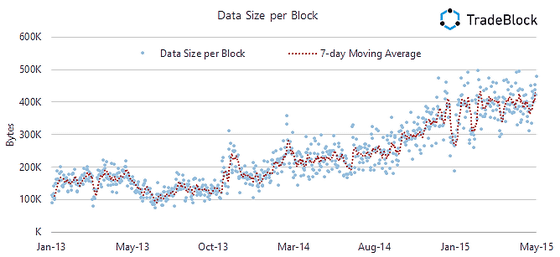What is "block size problem" that Bitcoin is holding to solve?

ByValentina Powers
A virtual virtual currency is coming out of the world, but Bitcoin (bit coin) continues to run the top in it. But,A developer who was engaged in core development once said "the experiment was a failure"As I said, the area is not smooth sailing. There were problems that have not been solved for over a year now.
What is the Bitcoin Block Size Debate and Why Does it Matter?
http://www.coindesk.com/what-is-the-bitcoin-block-size-debate-and-why-does-it-matter/

The problem is bigger and smaller for anything but the problem that bit coin has to solve is "Block size"is.
The bit coin incorporates a mechanism called "block chain" on the foundation. In the first place, there were no forms like "ten-yen coin" or "ten-thousand yen bill" in the bit coin, "Mr. A gave 30 coins to Mr. B" "Mr. B handed 15 coins to Mr. C" "Transaction history (trading) history that has been done so far" is the currency.
"A group of data that summarizes transactions over a certain period" is a block, and the data of the previous block is briefly summarized in the blockhashAnd the block specificNonce (nonce)Is stored.
Transactions in this block are not yet approved as they are done. In order to approve it is necessary to find "key", and trial and error will be repeated. Once the correct key is found and the transaction is approved, the block is connected to the block that was already approved. In this way, several blocks make a chain, and one transaction record is made.
A new bit coin is given to the first-come-first-served basis who found the new key and connected the blocks. This work is called "bit coin mining (mining)", it is "first-come," so in order to find the key ahead of othersMake a huge "mining facility"People are coming out.
Suppose there is a person who thinks "I want to acquire a large amount of bit coins illegally", and I falsify my transaction content. Then, since the hashes do not match, it is necessary to falsify all the data after that block, but "key" is required for tampering. However, people who "mined out" new bit coins are all over the world and the chain grows steadily, so tampering will not catch up with it. Thanks to this mechanism, it can be said that bit coins are kept safe.
You can see how transactions are taking place with a furious momentum at the following URL. Thus, it is a feature of bit coin that all transaction history is open, and it can be confirmed by a third party.
https://blockchain.info/ja/unconfirmed-transactions

While the bit coin was in the early days, the block could have 36 MB of transaction data, but in 2010 spam measures and potentialDoS attackIt was reduced to 1MB in preparation for it. This restriction continues even now that the number of bit coin blocks has increased and transactions have increased.
According to TrendBlock, After 2013, on average, the block size increased from 125 KB to 425 KB, the transaction volume increased 2.5 times per day. And it seems that on average 4 times a day it has reached the limit of this block size. For this reason, in the client software for "mining", the initial setting of the block size has been set to 732 KB, but it is still considered that reaching the "capacity limit wall" will be soon.
A graph showing how the data size of each block has changed due to TradeBlock. It is between 100 KB and 200 KB in January 2013, but it rises steadily and gradually, and from January 2015, numbers close to 500 KB are coming up.

Approaching the limit of block size is thought to be delayed processing of the transaction due to excessive burden of the network, and not only the delay, but also the refusal of the transaction. Under current specifications, there are seven transactions per day (about 600,000 cases per day), so if the network expands further, the time taken for trading approval (= mining) may not be several hours . As of 2015, the volume of transactions is 200,000 per day, and 33% of the processing speed already owned by the network has been exclusively used.
, It means that it would be better to expand the block size, as when lowering the limit from 36 MB to 1 MB. Naturally, developers of bit coins are also aware of this, and developers Gavin Andrésen and Mike Hearn are submitting the proposal "BIP 101". As for the contents, we will raise the limit to 8 MB and further increase by 40% every two years up to 2036, to adapt to future CPU power, storage and bandwidth growth.
Mr. Andresen was originally aiming to raise up to 20MB, but Chinese minors who already have hash power ("mining" power, computing power) of 50% or more already have band limitation by the country I showed a drastic change in major changes. Besides, Pieter Wuille proposed an increase of 17.7% each year and Mr. Jeff Garzik proposed a 2 MB emergency expansion, but none of them could receive support from bit coin core developers did. It is this situation that Mr. Mike Hearn threw a speech saying "The experiment was a failure."
However, since the block size is a problem to be solved, the sect first derived "Bitcoin Classic" which extended the current bit coin block size to 2 MB. On the other hand, since this derivation is a hard fork (incompatible software update), it is not possible to obtain overall support from the fact that everyone needs to switch at once, people who thought that they can deal with the function, We created a function called Segregated Witness (Segwit) that separates the electronic signature in the block and reduces the size of the block itself.
In the informal meeting held in Hong Kong in February 2016, implementing this Segwit, releasing a bit coin core including a hard fork by July 2016, hard in the summer of 2017 It was agreed to raise the forking block size to 2 MB.
Bitcoin Roundtable Consensus - Medium
https://medium.com/@bitcoinroundtable/bitcoin-roundtable-consensus-266d475a61ff

However, as this Hong Kong agreement was mainly based on minorities, developers rebounded. In response, Bitmain, a Chinese mining company operating the world's largest mining facility, declared that Segwit would not be introduced unless a hard fork was released in honor of the Hong Kong agreement, and conflicts with developers I showed my posture.
Also, the world's largest bit coin online wallet · Coinbase CEO Brian Armstrong opposed the Hong Kong agreement and expressed support for Classic.
I can not postpone forever, but various circumstances intertwine, and the conclusion of this problem has not come out yet.
Related Posts:
in Web Service, Posted by logc_nt







